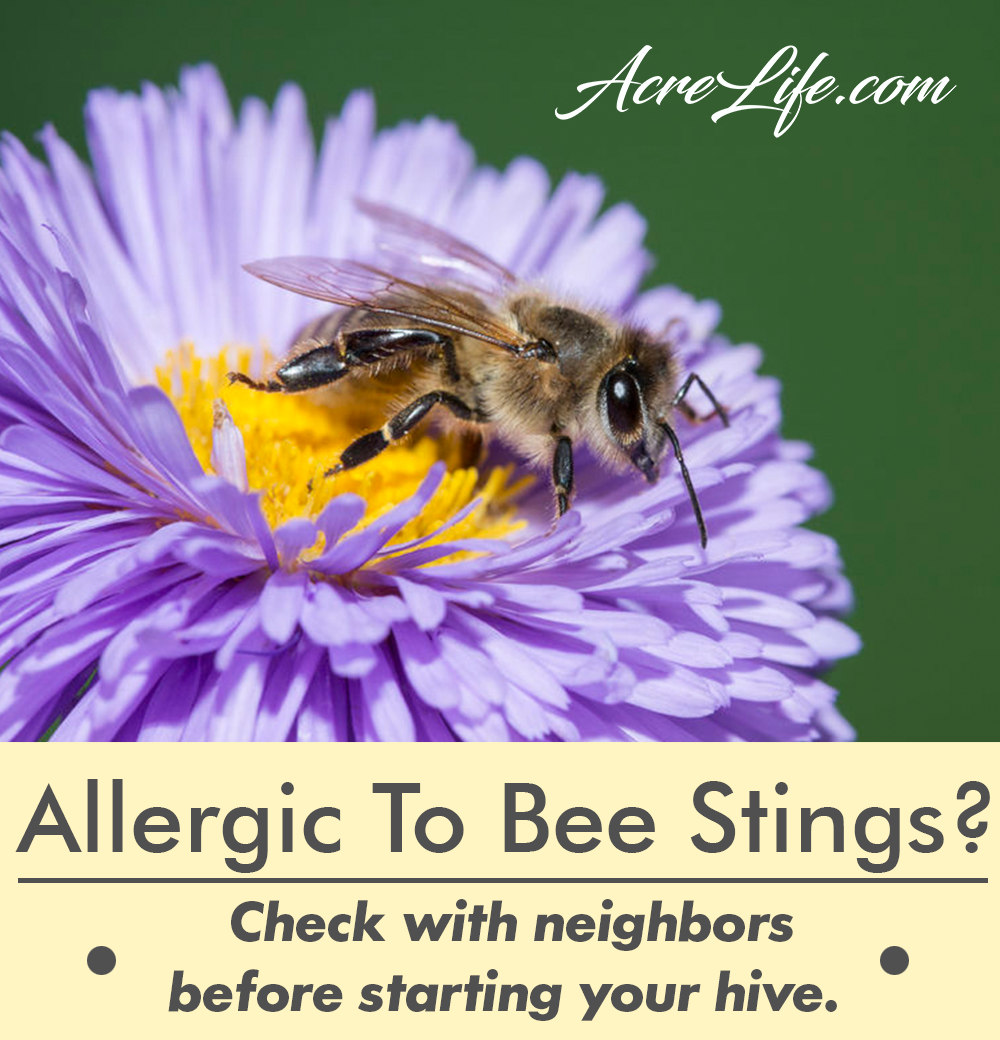Are My Neighbors Allergic To Bees?
Chances are pretty slim that your neighbors are going to be stung by your bees. But you should check with them to make sure that they aren’t allergic to bee stings and let them know that you are planning to start a hive. A great way to warm them up to the idea of living next to bees is to offer them a jar of honey when you harvest it.
If you have a large amount of land make sure you place your hive away from direct foot traffic and you shouldn’t have a problem. The majority of people who are stung by bees only experience localized reactions. These include swelling and itching. It is a good idea to keep an EpiPen on hand just in case you or someone on your property does have an anaphylactic reaction.
How to Treat a Bee Sting
I have bad news. As a beekeeper, you will inevitably get stung. The good news is that the pain won’t last forever. OK, maybe that’s not really good news. If you know what to do before you are stung you can alleviate stress and hopefully minimize the pain.
Allergic Reactions
The best way to know if you or a neighbor have a true allergy to bee venom is if there is swelling on parts of the body that were not stung. Hives and itching may also affect the entire body. Other symptoms may occur:
If any of the following symptoms occur you should call 911 or go to the emergency room immediately:
Take the necessary steps to prepare yourself before a bee sting occurs. Knowing what to do ensures that you will act quickly to treat the sting and avoid panic. If nobody in your surrounding area is allergic to bee stings, then you should go ahead and start your hive. The reward will far outweigh the risk.

Leave a Reply